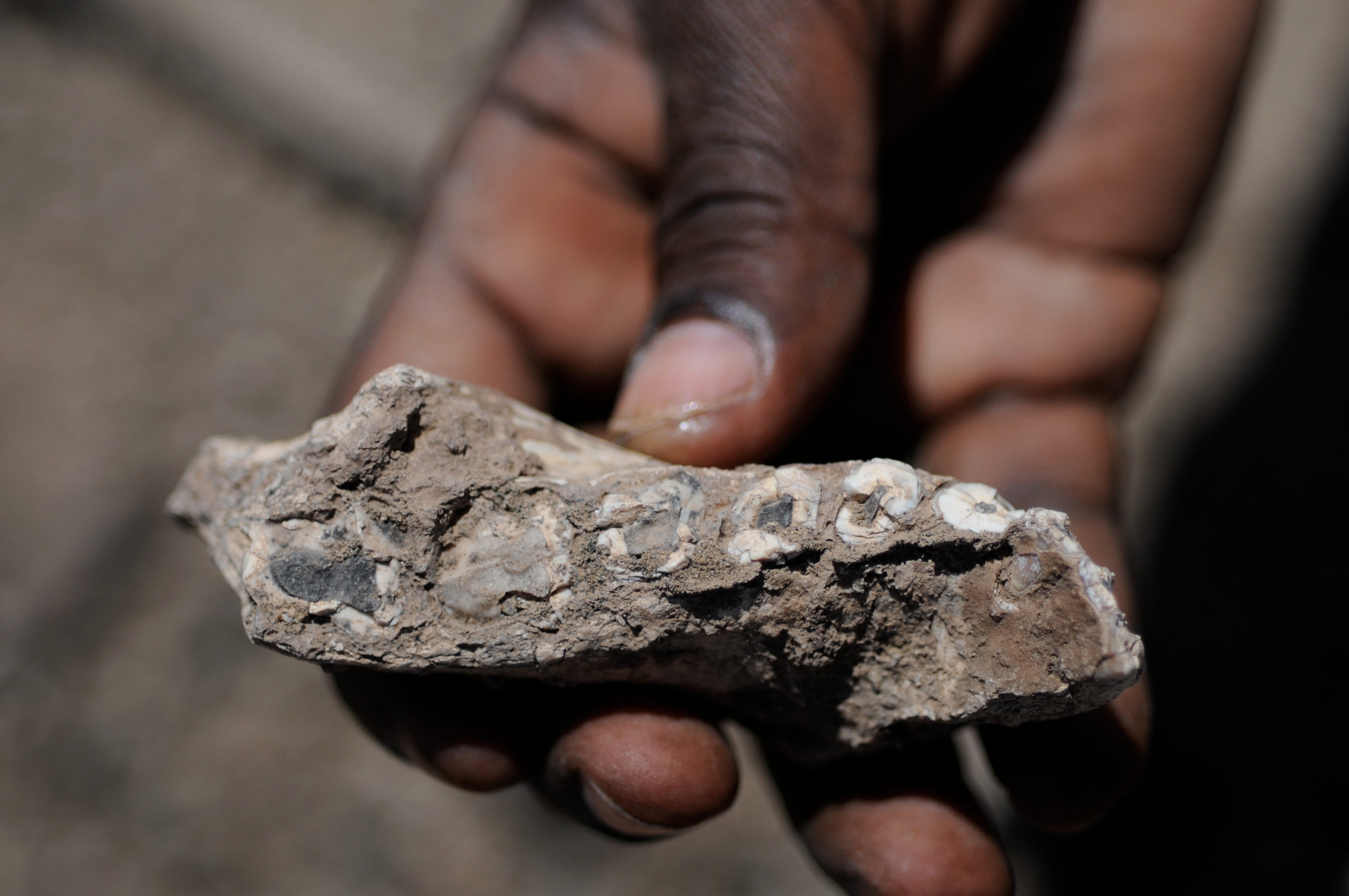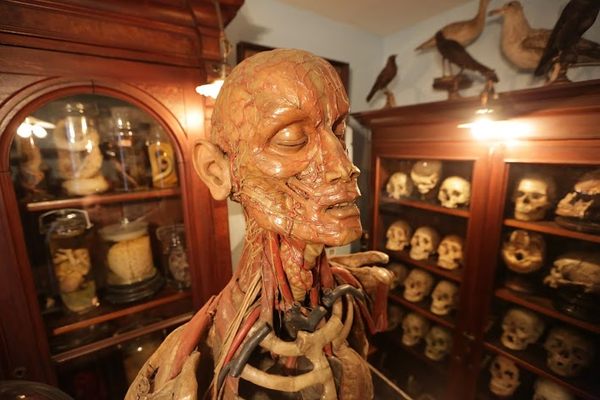FOUND: The Jawbones of a Never-Before-Seen Species of Early Human

Very, very old teeth. (Photo: Yohannes Haile-Selassie)
In the vicinity of three million years ago, in what’s now Ethiopia, there lived some two-legged apes that were going through some very strange changes—they were becoming more like us. This is the area of the world where the famous fossil Lucy was found. Now, in the same neighborhood, scientists have discovered the bones of what they think is a separate species of hominin.
They named this species Australopithcus deyrimeda. Its bones were found essentially around the corner from Lucy—about a day’s walk, National Geographic reports. These new fossils include part of an upper jaw and two lower jaws. The key differences that the team of scientists that analyzed them found are in the teeth—they’re smaller than other fossils’ and, in particular, the canine teeth are small, indicating that these hominins might have had a distinct diet.
The team, which published their results in Nature, argues that that differences between these and other fossils are too stark to roll up these hominins with previously identified species. But, it’s something of a judgment call: as a scientist not involved in the work told National Geographic, “the distinctions are very, very subtle.”
Essentially, we keep finding these little bits and pieces of human-like creatures and trying to imagine what their world was like—and how they might have seen each other. Of course, the windows of time in which we know these species lived are wide—hundreds of thousands of years. But however subtle the differences between the fossils, it’s becoming harder and harder to argue for a linear and teleological history of human development. It’s looking like the human history that we have to piece together from shards of bones was just as messy as our present day world.
Bonus finds: A new species of early humans, the second longest insect in the world, a 300-year-old box of tea
Every day, we highlight one newly lost or found object, curiosity or wonder. Discover something unusual or amazing? Tell us about it! Send your finds to sarah.laskow@atlasobscura.com.









Follow us on Twitter to get the latest on the world's hidden wonders.
Like us on Facebook to get the latest on the world's hidden wonders.
Follow us on Twitter Like us on Facebook